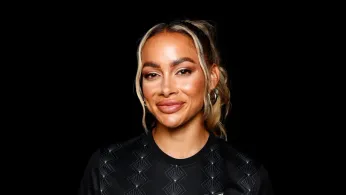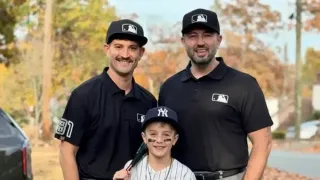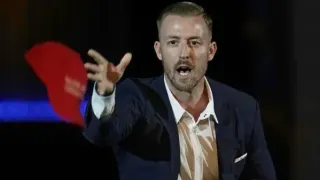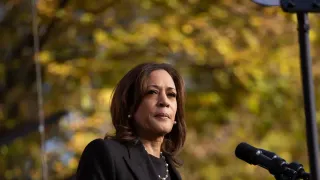
9 hours ago
Angel City’s Stand: Soccer Stars Push Back Against Transphobia and Racism in Women’s Sports
READ TIME: 4 MIN.
In a year marked by reckonings on and off the field, few moments have felt as raw—or as relevant to queer fans—as the recent uproar at Angel City Football Club. The drama didn’t play out under stadium lights, but in the press room, where captain Sarah Gorden and vice captain Angelina Anderson delivered what may be the NWSL’s fiercest defense of trans and intersex athletes to date. This wasn’t just about policy; it was about people—about teammates, community, and the soul of women’s sports itself.
The spark? An op-ed by Angel City player Elizabeth Eddy in the New York Post, arguing for new, restrictive gender eligibility rules in the National Women’s Soccer League (NWSL). Eddy’s piece, which called for players to be “born with ovaries” or face genetic testing, landed online with a photo of Orlando Pride’s Barbra Banda—a Zambian star who’s endured relentless, racist, and transphobic harassment from fans and media alike. The reaction was immediate and, for many in the LGBTQ+ community, heartbreakingly familiar .
Gorden and Anderson didn’t mince words. As Gorden opened her press conference—voice steady, but emotion barely masked—she spoke not just for herself but for the “hurt and harmed” teammates beside her. “We don’t agree with the things written for a plethora of reasons, but mostly the undertones come across as transphobic and racist as well,” she declared, adding, “That article does not speak for this team and this locker room” .
For queer and BIPOC athletes, these aren’t abstract debates. Gorden, who has long used her platform to address social justice issues, called out the insidious harm of singling out players—especially Black and African women—under the guise of “fairness.” “The article calls for genetic testing on certain players, and it has a photo of an African player as a headline, and that’s very harmful, and to me it’s inherently racist,” she continued. “To single out this community based on them looking or being different is absolutely a problem. As a mixed woman with a Black family, I’m devastated by the undertones of this article, and I feel very protective of my teammates and this community” .
Anderson echoed the need for unity and belonging—values that resonate deeply in queer circles. “I just want everyone to know that we’re doing our best in the locker room to preserve respect and belonging on this team,” she said, underscoring how even high-performing spaces aren’t immune to the culture wars roiling broader society .
Eddy’s op-ed did more than just stir debate; it spotlighted a growing trend in global sports—one that threatens to roll back hard-won gains for inclusion. Across leagues and governing bodies, there’s a renewed push for “sex-based” policies, often rooted in biological essentialism and enforced through invasive testing. The NWSL, notably, has no current, public gender eligibility policy and hasn’t since quietly scrapping its previous guidelines in 2021 .
But here’s the kicker: there are zero out trans or intersex players in the NWSL right now. The proposed policies, then, function less as solutions and more as signals—setting the stage for policing bodies, inviting suspicion, and, as Gorden says, fostering “harassment of current players—to whom such a policy would not apply in any case—especially Black and queer players” . It’s a pattern familiar to anyone who’s watched queer and POC athletes become scapegoats in the name of “protecting women’s sports.”
And let’s be clear: the demand for genetic testing or “proof” of womanhood doesn’t just harm the hypothetical trans or intersex athlete; it casts suspicion on anyone who doesn’t conform to narrow, Eurocentric norms. This is a slippery slope—one that’s echoed in the experiences of icons like Caster Semenya and, more recently, Barbra Banda, who’ve faced career-threatening scrutiny and public humiliation .
For LGBTQ+ fans and athletes, this moment isn’t just a clash of opinions—it’s a test of whether sports can be a space for all women, or only those who “fit.” The Angel City response is part of a wider, overdue conversation about whose bodies are policed, whose voices get heard, and who gets to claim belonging.
Angel City FC’s leadership, both from the club and its players, have made their stance clear: “Since our founding, Angel City has remained committed to equity, inclusion, and belonging. These principles will always guide how we show up for our team, fans, and community,” the club’s official statement read . That’s not just PR; it’s a challenge to a sports culture that too often defaults to exclusion.
The NWSL Players Association has weighed in, too, emphasizing that any policy on gender eligibility must be crafted with input from *all* players, through a “thoughtful, deliberate process that engages all our members and the issues that are important to them” . Translation? No more top-down edicts about who counts as a woman; it’s time for genuine conversation and collective decision-making.
For queer readers, this isn’t just about soccer—it’s about every space where identity, safety, and joy intersect. Sports have always been both sanctuary and battleground for LGBTQ+ folks, a place to find family and, sometimes, to fend off those who would deny our right to play.
Gorden and Anderson’s stand is a reminder that allyship isn’t passive; it’s loud, loving, and, at times, uncomfortable. It’s about calling out racism and transphobia not just on social media, but in the press rooms, boardrooms, and locker rooms that shape the culture of sport.
The echoes of “That article does not speak for this team” will reverberate far beyond the NWSL. They’ll sit with every young queer athlete who’s been told they’re too much, too different, or don’t belong. And for anyone who’s ever felt unseen or unsafe in sport, Angel City’s message is clear: You belong. The game is for you, too.
Let’s hope other teams—and leagues—are listening.






